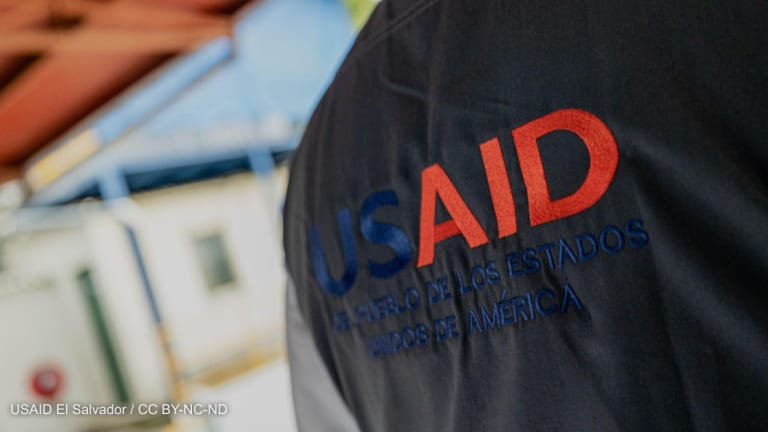What experience can help you land a job with USAID?
Bob Leavitt, chief human capital officer at USAID’s Office of Human Capital and Talent Management, talks about career opportunities in the foreign service and civil service, as well as in-demand skills.
The civil service and foreign service offer two very different career pathways to work with the U.S. Agency for International Development. Both are part of the agency’s direct hire mechanism and, combined, make up approximately a third of the overall workforce. There are distinguishable features between the two fields, but both contribute to the advancement of the agency’s mission, said Bob Leavitt, chief human capital officer at USAID’s Office of Human Capital and Talent Management. Foreign service Staff in the foreign service can be assigned to job postings anywhere in the world for a number of years. Overseas, they can be deployed to a critical priority country, such as Afghanistan or Iraq, or in regions facing more traditional development priorities. “The availability to serve where needed is absolutely critical, [whether] overseas or in Washington,” Leavitt said. Within the foreign service there are 13 technical areas, or backstops as they are known in the agency. These include agriculture, environment and climate change, economic growth and trade, global health, education, gender equality, democracy and governance, and humanitarian assistance. Four additional support backstops — executive officer, financial management, legal and contracting — provide administrative and managerial functions Procurement and contracting is an area of significant demand as these skills are “absolutely essential to [the] agency’s mission,” Leavitt said. In the last year, other urgent hiring priorities have included executive officers, health specialists and regional legal advisors, he added. Hiring doesn’t tend to focus on senior positions but all FS positions, except for financial management and engineering, require a master’s degree “Our work is ever-changing in many ways, and we need the workforce and the talent in ... new emerging areas to respond.” -- — Bob Leavitt, chief human capital officer, USAID’s Office of Human Capital and Talent Management Civil service Civil service positions are primarily based at the agency's headquarters in Washington, D.C., or in a few cases, through remote work elsewhere in the United States. “These positions work in tandem with the foreign service,” Leavitt said. The bureau for management, for example, is one of the largest within the agency and includes several hundred career civil service positions — from procurement professionals to information technology specialists, to general management specialists. “It is these positions that help support the work of the broader agency in moving our mission forward,” he said. Other “mission critical” civil service positions are in human resources, contracting and procurement, and health. The past year has seen an increase in hiring in these areas as well as for country desk officers for all regions and for people to support the management of humanitarian programs from Washington, D.C. Civil service hiring spans all position grades and is “wide open with regards to opportunities to enter into the workforce,” Leavitt said.
The civil service and foreign service offer two very different career pathways to work with the U.S. Agency for International Development. Both are part of the agency’s direct hire mechanism and, combined, make up approximately a third of the overall workforce.
There are distinguishable features between the two fields, but both contribute to the advancement of the agency’s mission, said Bob Leavitt, chief human capital officer at USAID’s Office of Human Capital and Talent Management.
Staff in the foreign service can be assigned to job postings anywhere in the world for a number of years. Overseas, they can be deployed to a critical priority country, such as Afghanistan or Iraq, or in regions facing more traditional development priorities. “The availability to serve where needed is absolutely critical, [whether] overseas or in Washington,” Leavitt said.
This article is exclusively for Career Account members.
Unlock this article now with a 15-day free trial of a Devex Career Account. With a Career Account subscription you will get:
- Full access to our jobs board, including over 1,000 exclusive jobs
- Your Devex profile highlighted in recruiter search results
- Connections to recruiters and industry experts through online and live Devex events
Start my 15-day free trialAlready a user?
Printing articles to share with others is a breach of our terms and conditions and copyright policy. Please use the sharing options on the left side of the article. Devex Pro members may share up to 10 articles per month using the Pro share tool ( ).
For four years, Emma Smith covered careers and recruitment, among other topics, for Devex. She now freelances for Devex and has a special interest in mental health, immigration, and sexual and reproductive health. She holds a degree in journalism from Glasgow Caledonian University and a master’s in media and international conflict.




